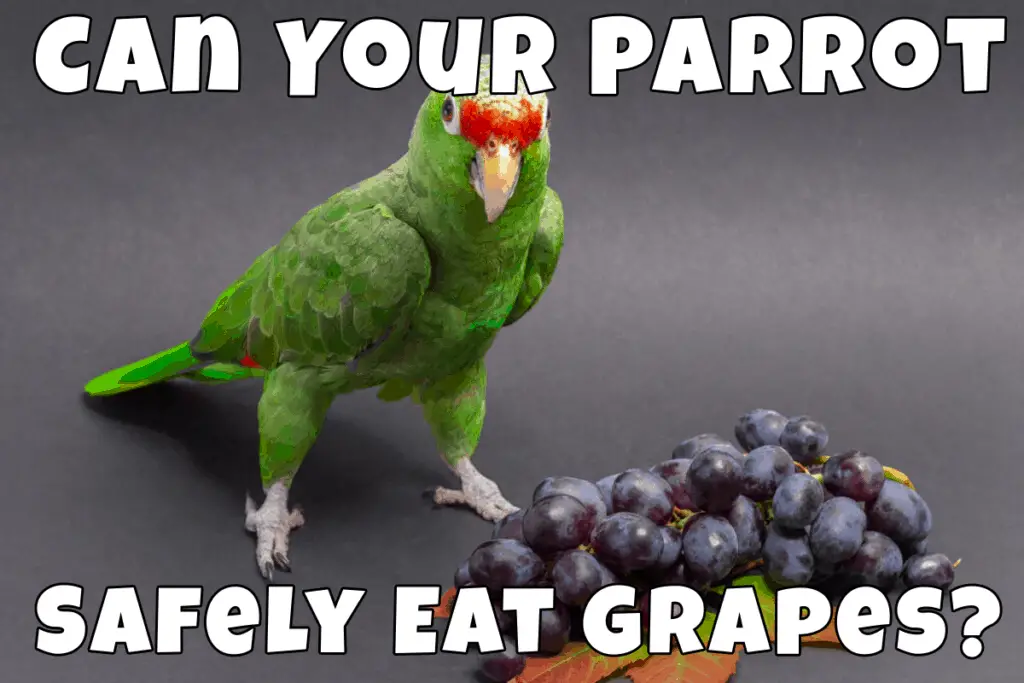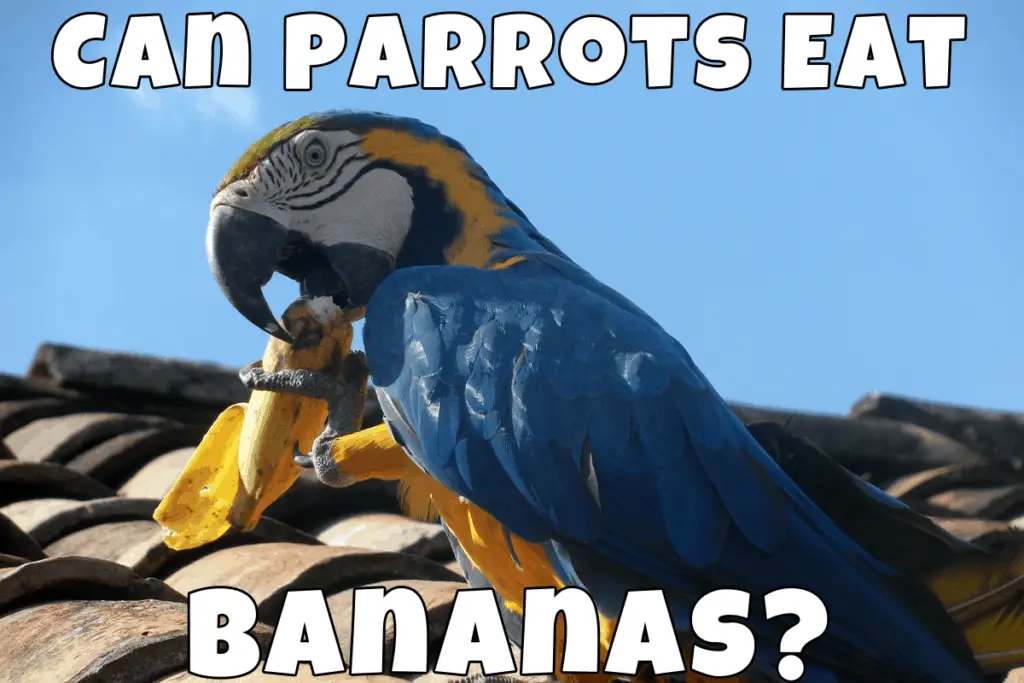Who doesn’t like cheese, right? We eat it with everything. There is a saying in my family – there’s no such thing as too much cheese. But does it concern parts as well? After all, you like to share with our pets the best of the best. And cheese is undoubtedly that.
The answer to this question is complicated. Cheese is usually not included in a parrot’s diet because it does the bird little good. However, it is safe, and you can try giving your bird a little bit of cheese if you want for whatever reason. But it should be limited to a very, very small bite.
If you still want to experiment with cheese, you should know about all the kinds and how they can affect your bird. Though I’m not a fan of giving a parrot something that is not 100% necessary, a bit of cheese won’t hurt, and I know that people like to experiment.
Is Cheese Safe for Parrots?
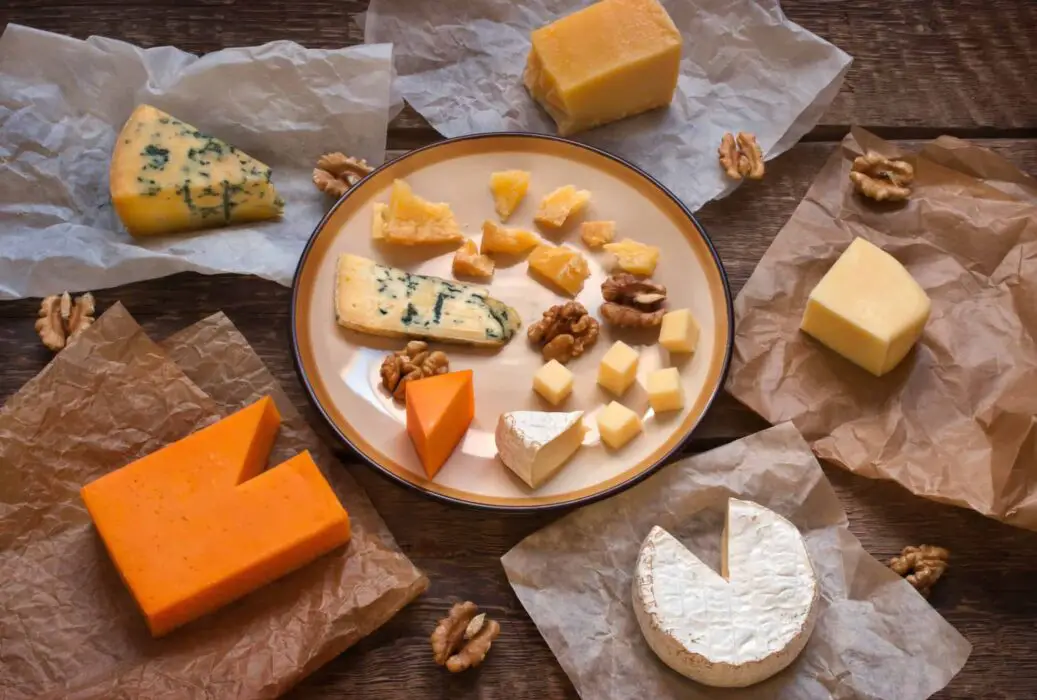
Generally speaking, a bit of cheese once in a while is okay. A bird will taste something new and probably enjoy the new taste. Unfortunately, though, not all parrots will like the taste. If your pet doesn’t, that’s even better; you won’t bring unnecessary food to its plate.
But what can go wrong if your parrot likes it and eats too much? Is its serious?
Can African Greys Eat Cheese? (Food to Avoid)
Is Cheese Bad for Parrots?
Yes, too much can be dangerous, but not deadly or super serious.
Cheese contains lots of lactose. And just like people suffering from lactose intolerance, your parrot will receive the same side effects. It affects the digestive system of your bird and gives it a stomach ache.
Parrots naturally don’t produce the enzymes that break down lactose. Thus, they suffer even more than humans. If you give it too much cheese, be ready for a major diarrhea case!
In addition, if the cheese is of poor quality or has been stored incorrectly, the bacteria in it will disrupt the work of a parrot’s digestive system.
Plus, most cheeses are fatty and salty. I’d suggest providing fiber-rich vegetables alongside cheese to minimize the adverse effects. Zucchini, for example, contains a good amount of fiber and is 90 percent water. That’s exactly what was needed to accompany cheese.
What Are the Nutritional Benefits of Cheese for Parrots?
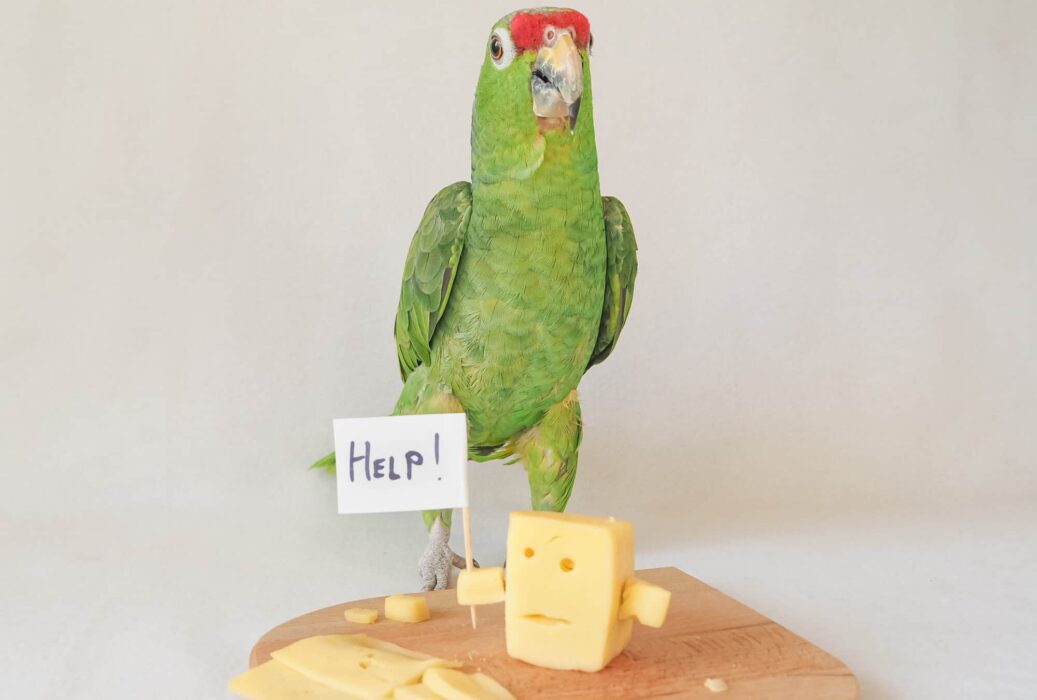
I’d say that there are minimal nutritional benefits for birds in cheese because they can safely eat tiny amounts that hardly give everything cheese has to offer.
Generally, if we consider cheese outside of a parrot’s diet, cheese is very beneficial as it contains lots of nutrients, mainly:
- Vitamin K – helps to heal wounds and supports bone health.
- Vitamin B12 – beneficial for blood formation, the brain, and the nervous system.
- Calcium – strengthens bones, muscles, connective tissues, and blood vessels.
- Vitamin A – health of kidneys, brain, and vision; boosts the immune system.
- Zinc – aids insulin production, bone development, and molting. Increases vitamin A absorption.
- Protein – essential for liver and proper growth, muscle development.
- Riboflavin – energy boost.
- Phosphorus – essential for metabolism and egg formation.
Are Various Types of Cheese Affect Parrots Differently?
Yes, they definitely do. Although all of them contain lactose, they differ in amounts. Logically, you can give more cheese with low lactose content to get more nutrients from them.
Hard cheeses usually contain less lactose than soft ones, as you can read in this article by Healthline.
Naturally, we can assume that Swiss cheese, Parmesan, and Cheddar are safer for parrots. In terms of lactose, yes. However, there is one catch – such aged hard cheeses are usually higher in calories than the young soft brie, camembert, or cottage cheese. Thus, it means that they put your parrot in danger of becoming overweight if you give too much too often! There is nothing toxin in either option but think in terms of benefit/negative effects. Is it really worth all the consequences? Besides, nobody can tell how much cheese is too much for a parrot. You’ll only be left to judge by diarrhea. And that means goodbye to all the beneficial nutrients.
Can Parrots Eat No-Dairy Cheeses?
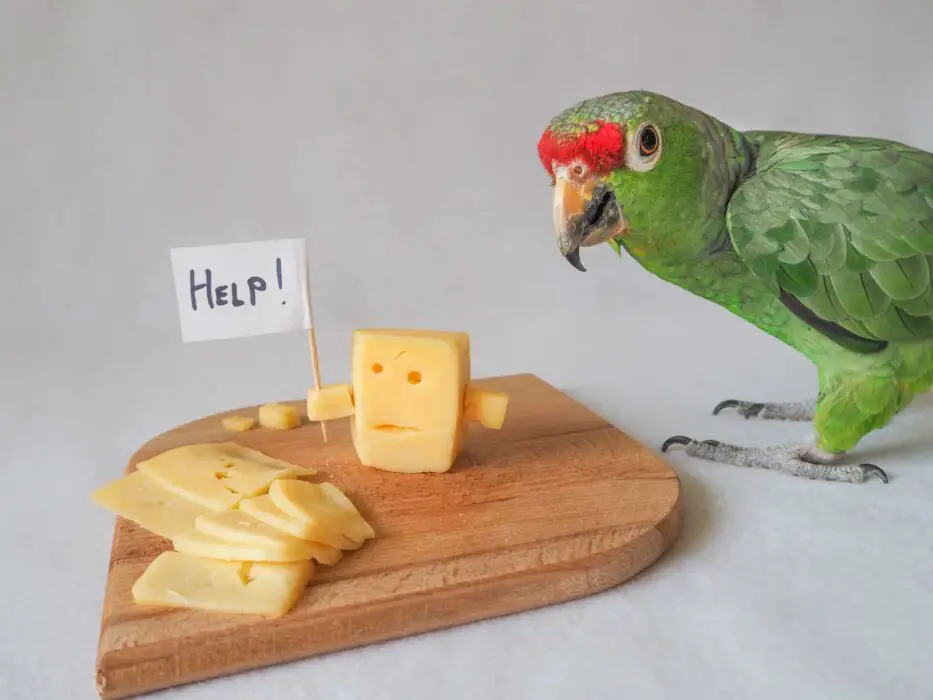
Unfortunately, no.
It seems that there is no winning with all these cheeses. Most non-dairy cheeses are made of soy. And that is a no-no for parrots. It’s full of hormones (forms of estrogen) that negatively affect bone and beak health and may even lead to deformity. As with regular cheese, small amounts are okay. To my mind, regular cheese is even less harmful than soy cheese.
But what about types of non-dairy cheese. There are a couple of kinds besides soy.
Can Parrots Drink Milk Safely?
Coconut Oil Cheese
Also, no.
This is a heavily processed cheese. As a rule, I prefer not to give processed foods to parrots. No matter how “clean” they seem to be. Besides, such cheeses often come with additional flavors. And the popular options like garlic or onion are toxic for parrots! By the way, the same rule concerns regular cheese with flavors. That’s a strict no from me!
Nut Cheese
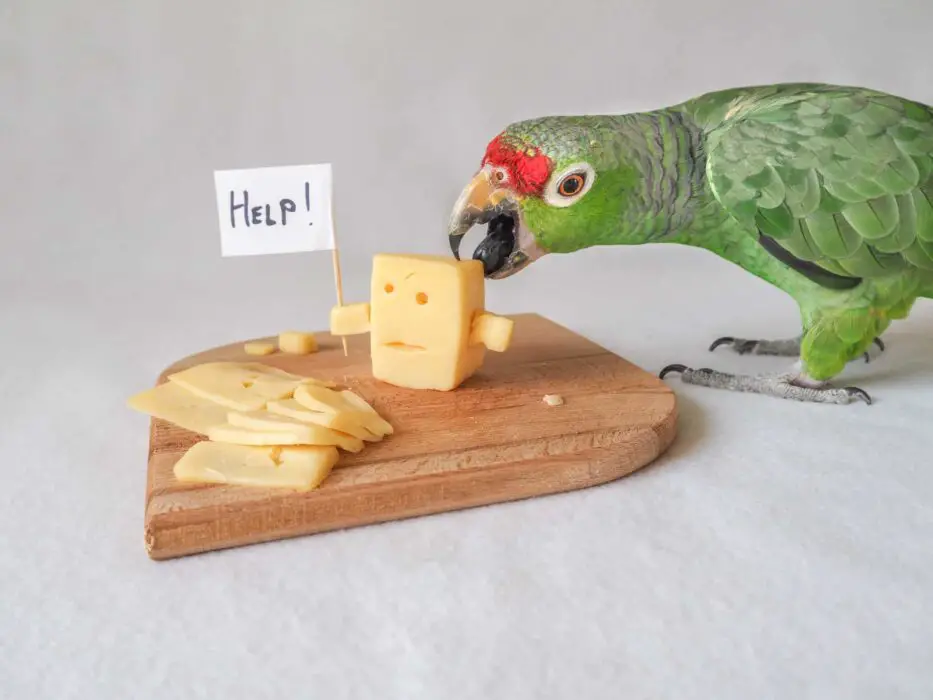
Bingo! This is the only cheese that your parrot should eat.
Nuts are a typical food in a parrot’s diet. Thus, if the ingredient list doesn’t include some sort of artificial or harmful flavors, you can treat your bird with nut cheese once in a while. This cheese is not only safe to consume but actually beneficial to consume!
Please, take my advice and keep to nut cheeses only. Plus, you can add fresh nuts to the plate as well. For example, parrots eat pistachios and almonds rather eagerly!
Can Eclectus Parrots Eat Walnuts Safely?
TL;DR
Regular cheese is safe for parrots but not optimal. It should be consumed only in tiny amounts.
All the nutritional benefits that cheese may bring in bigger (harmful for birds) quantities can be achieved by including food that is common for a parrot’s diet naturally. Most of them can be received from fruit, vegetables, and nuts.
If you want to treat your parrot with a bit of cheese, look for pure nut cheese without added flavors and colors! That is your safest option.

